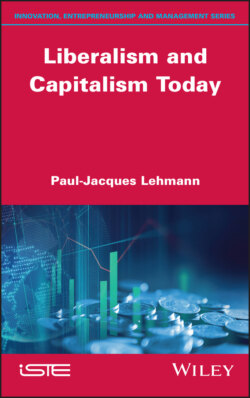Читать книгу Liberalism and Capitalism Today - Paul-Jacques Lehmann - Страница 21
1.3.3. When economic power…
ОглавлениеWeber insisted that the existence of the bourgeois as a social body preceded the development of capitalism. The urban environment would gradually become more important thanks to the wealth accumulated by a certain number of its citizens. Farmers who managed to amass a small fortune and who wanted to avoid paying taxes moved to the city or sent their children there. The countryside lost its importance, as the farmers who lived there had to go to the city, both to sell the products from their harvest and to shop there: the flow of the products was not a problem.
Several other factors contributed to the expansion of some cities. For example, maritime cities became richer thanks to the conquest of overseas colonies and the installation of trading posts, allowing them to achieve a certain fiscal autonomy. What followed was the need to create rational rights, as opposed to supernatural ones, which were specific to the cities: market rights and trade police who controlled the quality of goods, monitored prices, ensured the maximum number of apprentices and companions of each master whose appointment was reserved for the sons of masters, prevented people outside the city from acquiring too decisive a role in existing companies and so on At the same time, an administration composed of specialized civil servants was set up.
For Weber (2019), it is thanks to the initiative of the bourgeoisie that capital exists. Indeed, they are “risk-takers, calculating and daring men at the same time, wise and greedy, who amass more than they spend, men above all sober and sure, perceptive men entirely devoted to their task, professing severe opinions and strict bourgeois principles […] They are neither adventurers nor upstarts. They are men who exist according to their enterprise and not the other way around. From the very beginning, the medieval bourgeois-citizen is much more homo oeconomicus than the one in the ancient city cannot or will not be. He abandons violence and weapons in politics for peaceful means in the search for the possibilities of gain available to him in the urban environment”.
The new inhabitants of the cities, traders and free craftsmen, would group together sociologically to form the class of the bourgeoisie, which would acquire economic power at the expense of the aristocracy, despite the privileges it retained. A rivalry then took hold between these two social classes and would not cease to grow as the influence of the bourgeoisie asserted itself. For example, in France, commoners gradually took the place of nobles, not only in the cities, where having been simple consumers they became merchants and then producers, but also in the countryside where they bought land and replaced former landowners.
As a result, the person who, as a representative of the state, had become the most important element, settling all the administrative and economic affairs of the territory on which they officiated, was no longer the nobleman, but the steward from the bourgeoisie, which allowed royal power to annihilate the influence of the great feudal lords.
